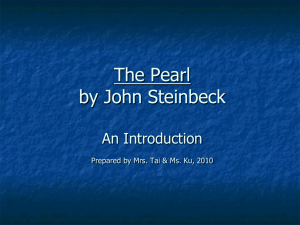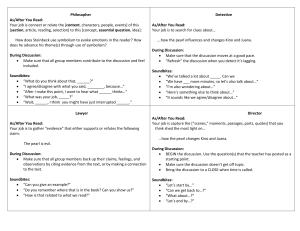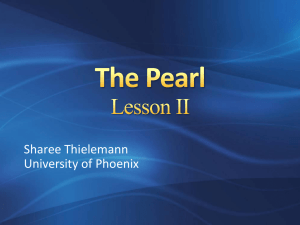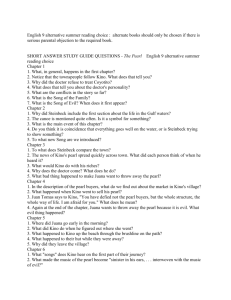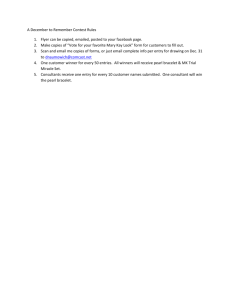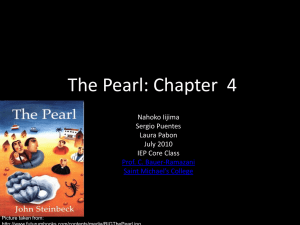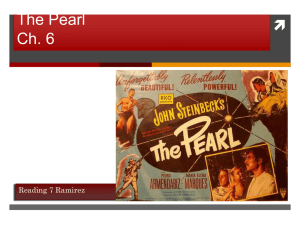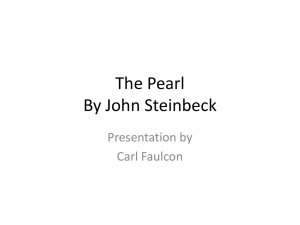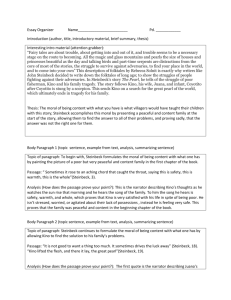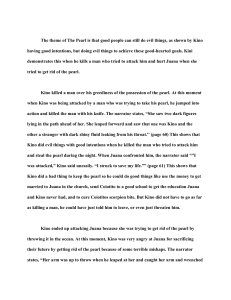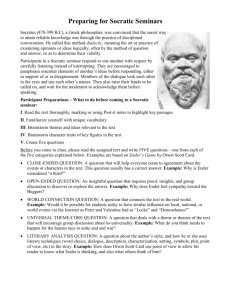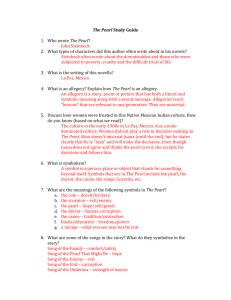The Pearl Chapter 4
advertisement
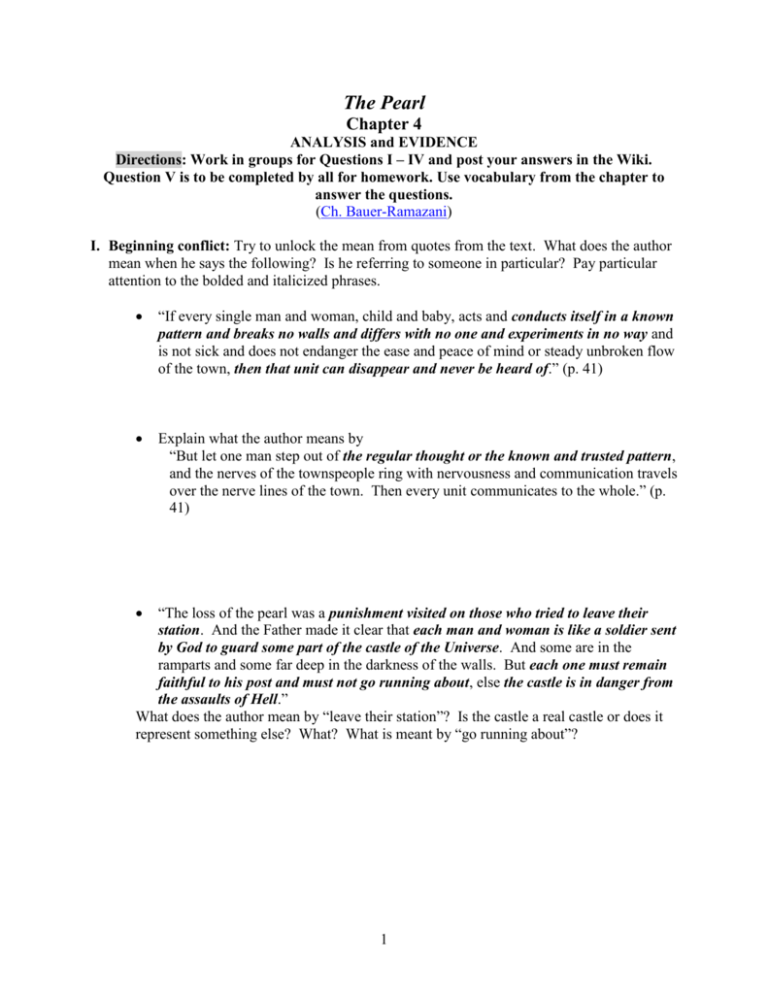
The Pearl Chapter 4 ANALYSIS and EVIDENCE Directions: Work in groups for Questions I – IV and post your answers in the Wiki. Question V is to be completed by all for homework. Use vocabulary from the chapter to answer the questions. (Ch. Bauer-Ramazani) I. Beginning conflict: Try to unlock the mean from quotes from the text. What does the author mean when he says the following? Is he referring to someone in particular? Pay particular attention to the bolded and italicized phrases. “If every single man and woman, child and baby, acts and conducts itself in a known pattern and breaks no walls and differs with no one and experiments in no way and is not sick and does not endanger the ease and peace of mind or steady unbroken flow of the town, then that unit can disappear and never be heard of.” (p. 41) Explain what the author means by “But let one man step out of the regular thought or the known and trusted pattern, and the nerves of the townspeople ring with nervousness and communication travels over the nerve lines of the town. Then every unit communicates to the whole.” (p. 41) “The loss of the pearl was a punishment visited on those who tried to leave their station. And the Father made it clear that each man and woman is like a soldier sent by God to guard some part of the castle of the Universe. And some are in the ramparts and some far deep in the darkness of the walls. But each one must remain faithful to his post and must not go running about, else the castle is in danger from the assaults of Hell.” What does the author mean by “leave their station”? Is the castle a real castle or does it represent something else? What? What is meant by “go running about”? 1 p. 54: What does Juan Tomas mean? Why is he afraid for Kino? “We do know that we are cheated from birth to the overcharge on our coffins. But we survive. You have defied not the pearl buyers, but the whole structure, the whole way of life, and I am afraid for you.” II. Historical references: p. 46: Who are the strangers? What do they represent? Who are the brothers and whom do they represent? What is the “wall” that the author mentions? Is it the wall around the town? Is it something else? III. The pearl dealer (p. 48: “… but the buyer’s eyes had become as steady and cruel and unwinking as a hawk’s eyes, while the rest of his face smiled in greeting. And secretly, behind his desk, his right hand practiced with the coin.” What does this say about the pearl dealer? How does he describe the pearl? (p. 49/50 and 51) IV. Character development: Kino What does the author mean by “There is a great deal to be seen in the tilt of a hat on a man.” (p. 44) “But Kino had grown tight and hard. He felt the creeping of fate, the circling of wolves, the hover of vultures. He felt the evil coagulating about him, and he was helpless to protect himself.” (p. 50) 2 p. 54/5, 57: Describe Kino’s state of mind and changing personality. Cite verbs, adjectives, nouns, and actions from the text as evidence. Kino is in a dilemma (a situation in which it is very difficult to decide what to do, because all the choices seem equally good or equally bad). Can you explain it? What is the problem with the pearl? Is this ironic (an ironic situation is one that is unusual or amusing because something strange happens or the opposite of what is expected happens or is true)? V. Character development: Juana What does the author mean by “She threw caution to the winds” (p. 44). What should she be cautious about? P. 55/56, 57: Describe Juana’s state of mind. Cite verbs, adjectives, nouns, and actions from the text as evidence. 3
